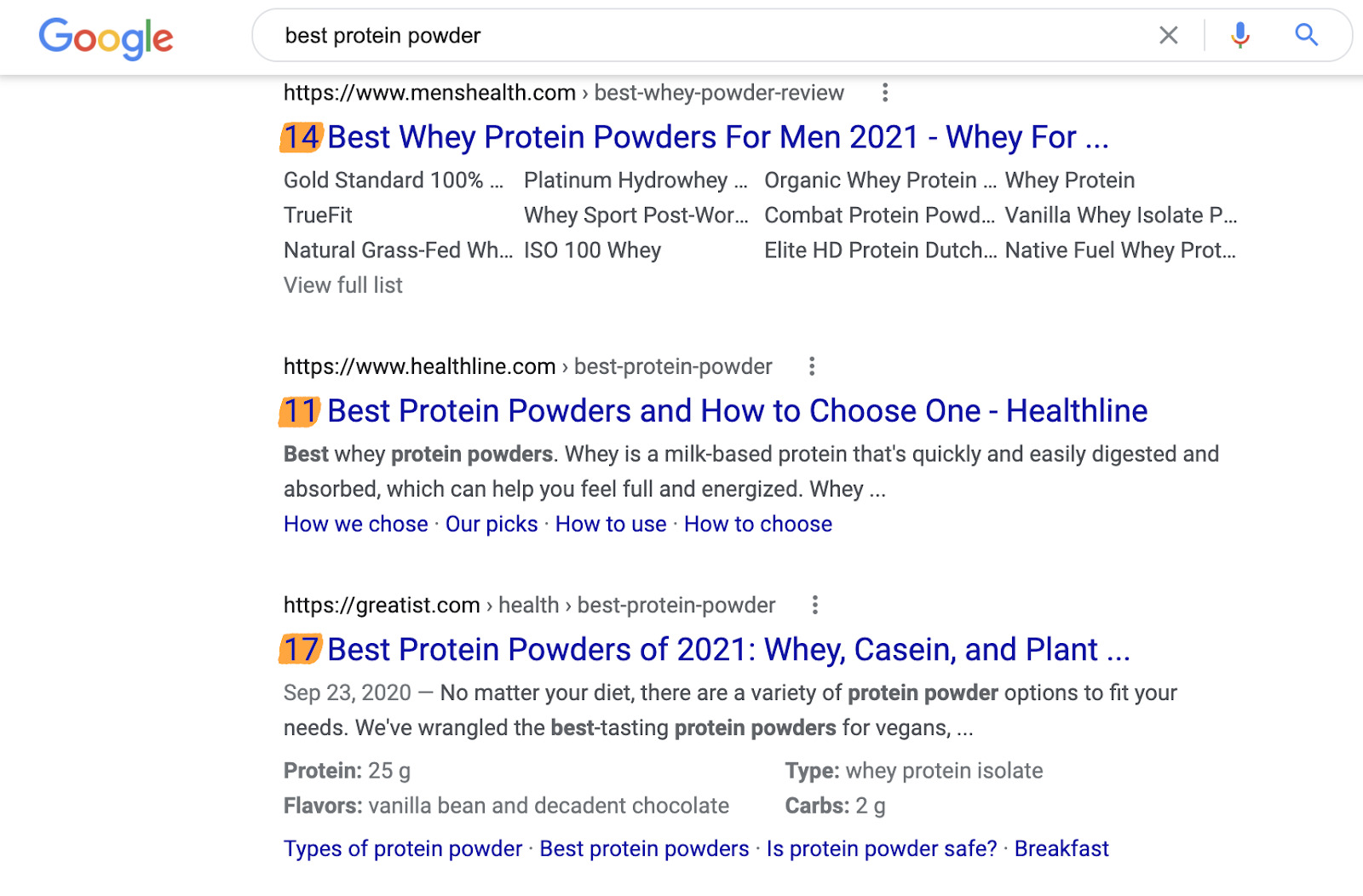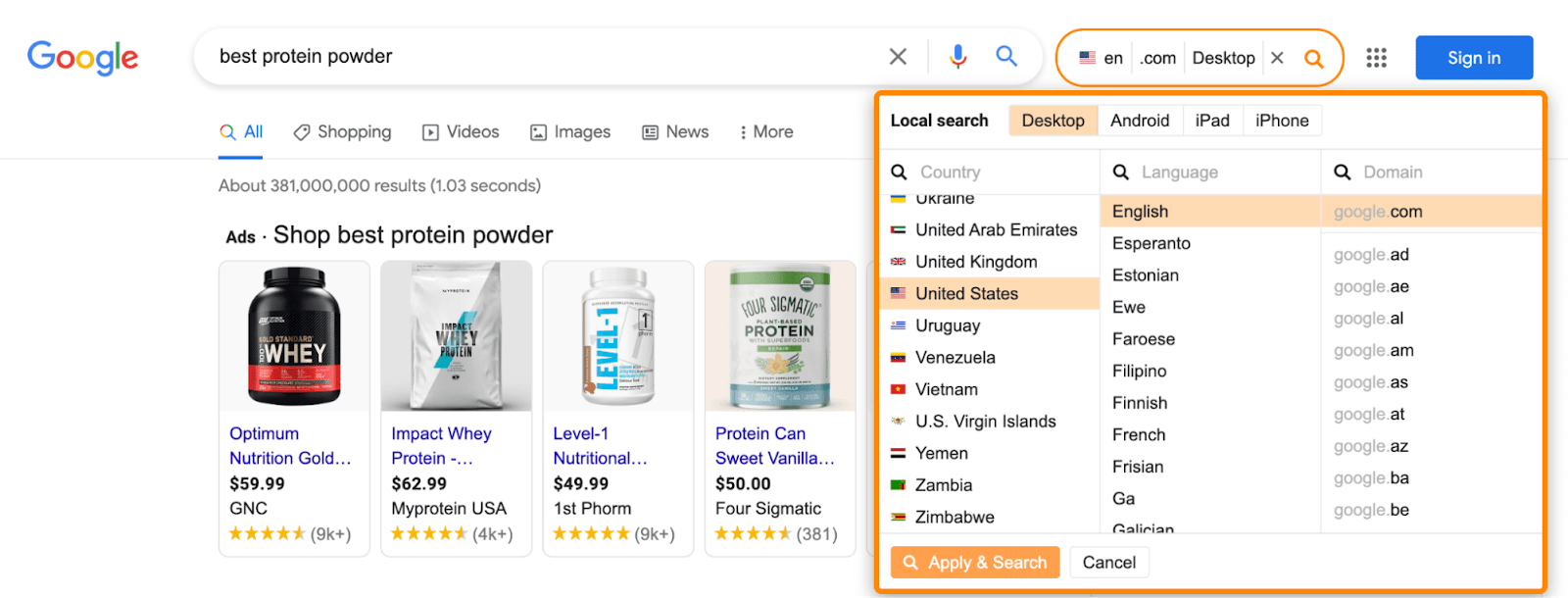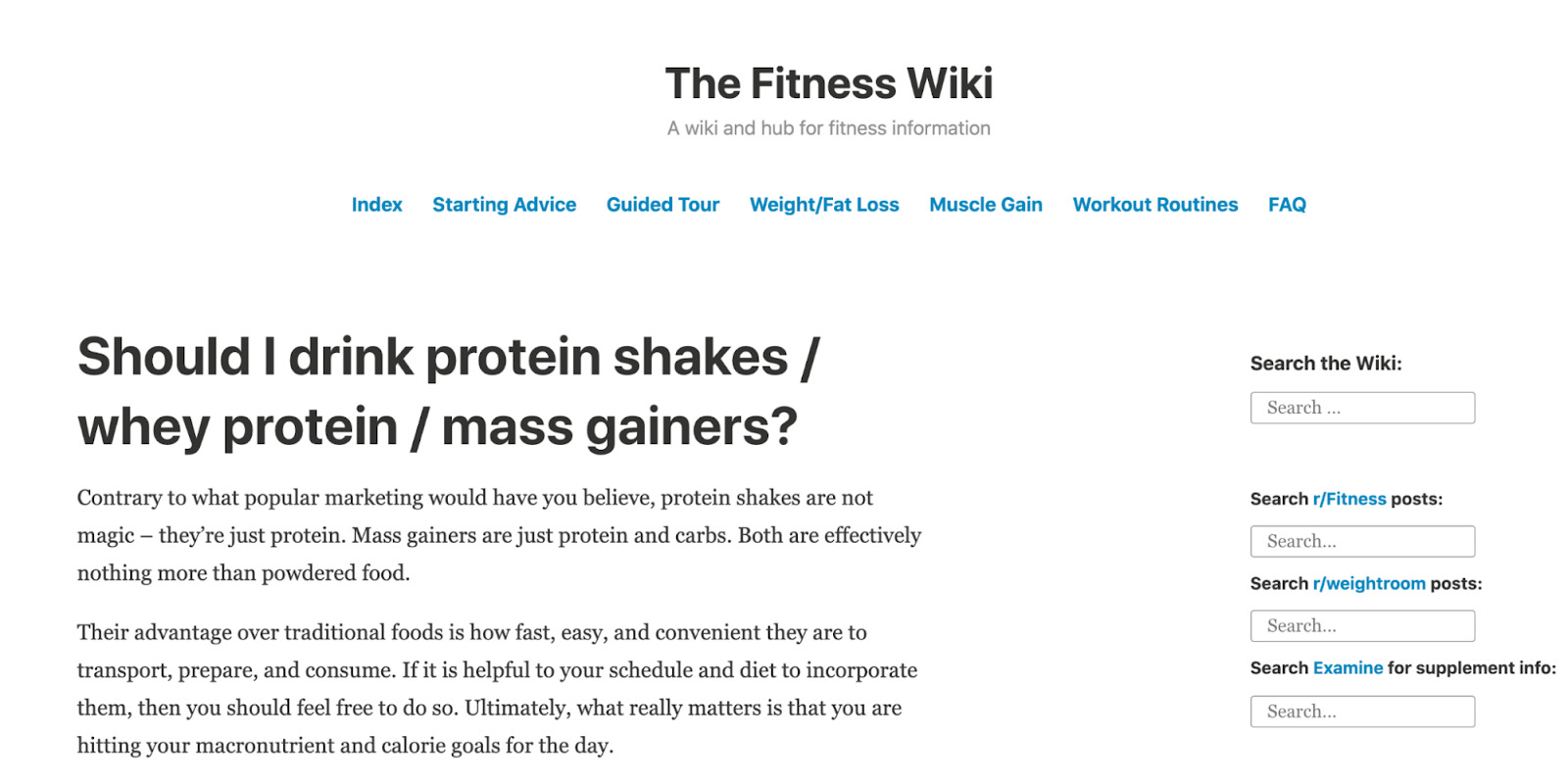Why?
Because you have to win the click. And that’s the job of the headline.
In this post you’ll learn how to write an irresistible headline that attracts clicks without being clickbait.
But first…
- What is a headline?
- Why are headlines important?
- How to write a headline in 3 steps
- 4 tips for headline writing
A headline is a title, a name.
A good headline does three things:
- Catch the reader’s attention
- Make the reader curious enough to click
- Accurately describe the content
If you can do all three in a single sentence, you’ll win all the readers you want.
A good headline leads people to your article. In fact, your headline will, in most cases, be the only factor people use to decide whether your article is the one worth reading.
And headlines compete for attention in different ways depending on the platform where they appear.
On social media
Your article is caked in an infinite scroll of alarming news, posts by your audience’s favorite people, and ads tailored to take their brains from browsing to buying. Now remember that people have an increasingly limited attention span. Your headline needs to compete and win against all these highly trained competitors.
In email subject lines
The average office worker receives 121 emails per day. Even if only 10% of those are newsletters with links to blog posts, most people won’t read 12 posts a day. They’ll choose the few most compelling ones based on their headlines.
From search results
The average website gets almost 2/3 of its traffic from Google. A good headline will increase the likelihood of searchers clicking your page over the other results.
Writing a headline isn’t that hard. You can get the basics down with a simple three-step system. Just keep a few things in mind as you work through it:
- You should write your headlines for Google searchers, since, most likely, as mentioned earlier, most of your traffic comes from search.
- It’s usually best to write your headline before writing your blog post, so this system takes that approach. That said, you can still use each step to refine an ad-hoc headline.
- You should avoid clickbait by having the article’s true contents in mind as you go through the steps. Often writing a headline after you write the article causes you to overpromise what readers will get out of the article. If the article doesn’t deliver, well, that’s clickbait.
But you’re going to deliver. Because you have Rebekah Bek’s expert guide 😉
Now let’s write that headline!
1. Pick a format
Let’s say you’re writing a post about the best protein powders. Any of these headline formats could work:
- Listicle: 10 Best Protein Powders to Build Muscle in 2021
- How-to: How to Choose the Best Protein Powder for You
- Tutorial: Best Protein Powder: Choosing the Best One in 6 Steps
- Opinion Piece: Is There Really Such a Thing as the Best Protein Powder? Science Says No
- Review: Optimum Nutrition Gold Standard Review: The Best Protein Powder
- Comparison: Optimum Nutrition vs. MyProtein: Which is the Best Protein Powder?
But remember, for most websites the most important source of traffic is Google. So you shouldn’t just pick the headline format that sounds best to you. You should choose the one that searchers are actually looking for so you stand the best chance of ranking.
How can you do this?
Look at the current top-ranking pages for your target keyword in Google and check for a dominant angle. You can see that the top three “best protein powder” articles are all listicles.

Just be aware that Google’s search results are personalized based on factors like your location and search history. To combat this, use Ahrefs SEO Toolbar in an incognito tab to simulate a search in your target country and language.

Keep in mind, the type of headline that works best will vary by your topic. While a listicle headline is best for a post about the best protein powders, a how-to headline is better for the post you’re reading right now. And your topic might need an opinion piece. It all depends on the search data.
If you’re writing a headline for an existing post that doesn’t match the dominant angle in the search results, consider whether you could change the angle with minor edits. For example, you can quickly turn a tutorial into a listicle by shifting a few words:
Write your Best Headline: A Six-Step System
→
6 Ways to Write a Good Headline
2. Add a winning angle
Now that you have the format down, you need to find the top-ranking angle.
Using the same articles from the last step, look for differentiating words. When looking at listicles for example, most articles start “# Best Protein Powders for…”
What comes after that “for” is the angle. In the case of “best protein powder” the dominant angle is gender. i.e., “For Men” or “For Women”.
But there are other options in the SERP too, like:
- “For better nutrition”
- “For every diet”
- “For you”
When choosing your angle, you need to balance what searchers want with what you can adequately write about. If you’re an expert and know a particular angle makes way more sense than another, you should take that angle.
If there’s no obvious dominant angle, focus on a clear benefit, a differentiating factor of your product/service, or simply something that hasn’t been focused on yet as long as it’s something your readers want to achieve.
For example:
- “For weight loss”
- “For building muscle”
- “For bulking”
Once you have the basic parts of your headline, i.e., format and angle, you just need to do one more thing…
3. Make it human
To truly hit home with readers, you need to make your headline human.
If you’re a human, this should be easy. Use adjectives or figures of speech you’d use to casually describe the article to your best friend.
So instead of “10 best protein powders for weight loss”, you might have:
- “10 best protein powders for effortless weight loss”
- “10 best protein powders for shedding the pounds”
- “10 best protein powders to get shredded”
To make this process easier, use your readers’ language. In every industry, there’s jargon, there’s slang, and there’s that personal way that people ‘in the know’ talk about their favorite things. If you have time to spare, read as many articles on your topic as you can.
You can also browse social media about your topic. Reddit, Twitter, and LinkedIn are great places to find niche phrases and community-specific language. Some subreddits even come with a Wiki and a Glossary that define keywords.

Wiki for r/fitness
Using this information, you might choose a headline like “17 Protein Powders That Help You Hit Your Macronutrient Goals” or “14 Protein Powders for Fast, Easy Transportation, Preparation, and Consumption.”
Choosing a winning format, angle, and “making it human” is enough for the “basic” step-by-step process on how to write a winning headline.
That said, after years of writing headlines, we’ve got four tips for you.
1. Add concreteness
The more specific your headline, the easier it is to read. The easier it is to read, the more people will like it. The more people like it, the more likely they are to click on it.
It’s that simple. And specificity comes from tangible, real world items.
For example, instead of “Protein Powders for Weight Gain,” try “15 Tasty Protein Powders to Help You Gain 1lb Per Week in Muscle.”
2. Surprise and delight
If your goal is to get traffic from places other than organic search, like social media, matching search intent might not be so important. You might make more of an impact by saying something interesting and unusual to make people stop and click.
There’s no real formula for this one; it relies on knowing your audience, the language they use, and what’s likely to resonate with them.
3. Create curiosity gaps
Give your information to everyone except the one you aim to make curious, e.g., “Everyone’s doing x but you!” Just make sure you back up that claim in your article so it’s not just another clickbait piece.
4. Test headline variants
When you post your article on social media platforms, you can choose a different title. Test variants on the main theme to see if one headline gets more clicks, likes, comments, and shares. Then use that as your main post title.
Final thoughts
Crafting a winning headline isn’t rocket science. It’s marketing science. And that’s significantly easier. In fact, if you use the three step system detailed above, you’ll be able to keep up with the best writers in your industry.
Once you’re ready to become the best headline writer yourself, check out the copywriting classics. They all have their own evidence-based headline formulas with theory to back them.
These are the five books that taught me the most:
- Scientific Advertising by Claude Hopkins. Introduced the concept of ‘copy testing’ by detailing the most effective headlines used in direct-response marketing circa 1923.
- Tested Advertising Methods by John Caples. Claude Hopkins’ methods refined by another decade. Includes the most successful headline formulas still getting clicks nearly a century later.
- Breakthrough Advertising by Eugene Schwartz. Introduced the idea of ‘Brand Awareness’ and how to market to each level of consumer.
- The Wizard of Ads by Roy Williams. This is a more modern, personal favorite that takes one of the most unique approaches to copywriting out there.
- Great Leads by Michael Masterson. Solely focused on how to write that first line of copy to make the biggest impact on your audience.
And once you’re a fully actualized headline-writing expert, optimize the rest of your article with Si Quan Ong’s magical guide to SEO copywriting.
Feel free to reach out on Twitter and ask me to drop you a [head]line!



